At first, I thought it was nothing. Honestly, after my car was hit from the back, I figured, “Hey, I walked away, no broken bones, just a bit shaken… maybe a little sore.” You know that feeling? Like, at first, your body seems to bounce back from a car accident. But things can get real messy, real fast. A little twinge in your lower back one morning, and suddenly you’re wincing every time you get out of bed. Maybe weird tingling or shooting pain down your leg, or that stubborn ache in your hip that just won’t quit.
Sound familiar? If you’re googling herniated disc after car accident in the haze of all these “post car accident symptoms,” you’re not alone. I’ve talked with friends, read forums, even sat with doctors who’ve seen this hundreds of times. And you want the truth? This kind of injury isn’t rare and it isn’t always obvious right away. Pain likes to play hide-and-seek… and often it’s not until days—or even weeks—after the crash that things start to make sense (or not!).
So let’s sit down, clear up the confusion, and talk about what it really means when you’re dealing with a herniated disc after a car accident. Bring your questions, your doubts, your “am I overreacting?” moments. This is a judgment-free, real talk guide inspired by genuine stories and solid facts.
Herniated Disc After Car Accident: What’s Going On In There?
You hear “herniated disc,” and, if you’re like me, your mind jumps to medical drama shows—but what’s actually happening? Okay, time for a (super simple) anatomy lesson: your spine is like a stack of building blocks, with little jelly-filled cushions (discs) sandwiched between the bones (vertebrae). Those discs keep things bouncy and flexible, absorbing the shocks of everyday life.
But—bam!—the force of a car accident, especially when you’re hit from behind, can jolt your whole back faster than your muscles can brace. Sometimes, this pressure squishes a disc so hard the gooey center squirts out, pushing on the nerves. That’s a herniated disc. And those nerves? They travel to your legs, hips, even your toes. Hello, leg pain after car accident, delayed hip pain after car accident, or even that infuriating right leg pain after car accident that makes you mutter under your breath every time you take a step.
Why Symptoms Sometimes Sneak Up On You
I know, it’s weird. You’d think such a dramatic injury would make itself known right away, but no—delayed symptoms are common. Your body is in shock, maybe a little adrenaline high, and swelling or inflammation can take time to show up. That’s how delayed leg pain after car accident or mysterious numbness starts days, or even weeks, later. There’s even a study from the National Institutes of Health showing just how often spinal injuries go unnoticed after a crash. You’re not imagining things, I promise.
How Do You Know If It’s a Herniated Disc?
Here’s what I wish someone had told me sooner. The pain isn’t always “bad back” pain—it can travel. You might feel:
- A sharp, burning, or shooting pain in your lower back or buttock (sometimes one side hurts more, especially if you’re dealing with right leg pain after car accident).
- Tingling, numbness, or weakness in your leg or hip.
- Trouble bending, sitting, or even sneezing—seriously, one good sneeze can ruin your day.
Real People, Real Pain: What It Feels Like
Want proof you’re not the only one going through this? Someone once told me, “It’s like someone poured hot coffee down my leg every time I stood up.” Another friend said their first post car accident symptoms were just an aching hip, but by week two, it felt like “my lower back was plugged in to an electrical socket.” Every body’s different, but herniated discs are notorious for keeping you guessing.
Post Car Accident Symptoms: More Than Just a Bruise
Let’s pause a sec. Not every pain is a herniated disc, of course. Car accidents can really shake us up, and common spinal injuries from car accidents are a whole family of problems. Sprains, muscle strains, even tiny fractures. Ever notice how, after a bad fender-bender, your back feels stiff or “stuck”? That could be anything from a harmless muscle knot to a sign of something deeper, like a disc moving out of place.
Red Flags (And When To Get Serious Help)
Okay, real talk: sometimes, pain is more than just inconvenient. If you ever have trouble controlling your bladder or bowels, or if your leg feels so weak you can’t walk, please go to the ER. But for most people, symptoms are more subtle—numb toes, stubborn backaches, the kind of painkillers only take the edge off. Here’s my friendly advice: even if it seems minor, document your pain and changes after an accident. A symptom diary isn’t just for medical folks; it helps you and your doctors spot patterns you might miss in the blur of daily life.
Why Delayed Symptoms Matter (And How To Track Them)
Imagine you’re fine for a week, then suddenly your right leg goes numb. Did the accident even cause it? Insurance and doctors might doubt you—but your evidence, like journal entries or quick phone-notes, can be a lifesaver when you’re trying to get help (or compensation, but we’ll get there). Be your own best ally: jot down symptoms, snap quick pics if there’s bruising, and update your doctor as things evolve.
Diagnosis and Treatment: Getting Answers and Relief
So you’ve got weird back pain, tingles, or maybe your leg is staging a slow mutiny. What’s next? Getting a solid diagnosis is half the battle—and the medical world’s secret weapon here is imaging. An X-ray might show broken bones, but MRI and CT scans are the treasure maps that reveal squished or ruptured discs. Some injuries hide, so don’t let “nothing broken” be the end of your quest for answers if you’re still limping around weeks later.
What You Can Expect During Diagnosis
Doctors will ask about your accident, examine you (yep, poking, prodding, bending), and probably order images if your symptoms won’t quit. Be honest—even if the pain comes and goes, or if you start feeling delayed hip pain after car accident a week later. Your story matters as much as the scans.
Treatment: From Couch Time to Surgery (Most Won’t Need the Knife!)
Here’s the good news: most people with a herniated disc after car accident won’t need surgery. The first steps almost always involve “conservative care”—physical therapy, pain meds, heat/ice packs, maybe a steroid injection to shrink swelling. Think of it like rehab for your back—slow, steady, and sometimes frustrating. I’ve known folks who swear by gentle stretches, while others have tried acupuncture, massage, or nerve pain prescriptions. You might just need more rest than your go-go-go brain is used to giving you.
Surgery is the last resort—usually for people who just can’t get relief or are at risk of nerve damage. If your doc starts serious surgery talks, ask lots of questions, and weigh the risks and recovery time. This is your body, your future… your call.
The Long Road: Real Recovery Stories
Recovery from a herniated disc after car accident isn’t a straight line. One person’s back pain might fade in weeks, while another copes for months. I’ve seen moms nursing babies with a heating pad strapped on, and delivery drivers learning new core exercises so they can get back behind the wheel. Don’t compare your path to anyone else’s—that’s the hardest (and most important) advice I can offer. Progress is progress, no matter how slow.
Compensation and Legal Stuff: Protecting Your Rights
If your life gets derailed by a herniated disc, the bills can pile up fast. Medical costs, physiotherapy, missed days at work—it adds up. That’s where lower back pain after car accident compensation comes into play. It’s not about being “sue-happy”—it’s about keeping your head above water when side effects of a crash upend your life.
When and How To Make a Claim
Your best bet? Don’t wait. File a claim with your insurance or the other driver’s policy as soon as you start connecting the dots (even if the worst pain shows up late). Keep all your records: doctor visits, prescriptions, scans, even the mileage for each trip to your physical therapist.
| Evidence | Why It Matters |
|---|---|
| Symptom diary | Documents delayed leg pain after car accident and supports your timeline claim |
| Doctor’s notes and scans | Shows the physical injury came after your accident—not before |
| Receipts (medical bills, travel costs) | Helps calculate true out-of-pocket loss and needed compensation |
If you feel lost, don’t stress—this is when a personal injury lawyer can help (usually, their first consult is free). They’ll help you prove, with medical records and expert testimony, that your herniated disc after car accident really did come from the crash—not that old weekend-gardening injury. According to the Journal of Orthopaedics, even subtle car accident side effects are compensable if properly documented and clinically linked to the crash. Don’t let anyone tell you otherwise.
The Hurdles: What To Watch Out For
Insurance companies are famous for underplaying injuries or saying, “You waited too long to complain.” That’s why every little note and visit counts. And never, ever exaggerate—accuracy builds trust, and it’s always better to understate than overstate your pain if you want to be taken seriously. Keeping honest and organized is your best armor in this battle.
Taking Back Control: Healing and Moving Forward
Okay, let’s circle back to your real end goal—not just surviving, but thriving. Yes, a herniated disc after car accident can shake your world, but you’re not powerless. There’s a ton you can do, from early intervention (catching symptoms quickly) to finding recovery routines that work for you—think personalized exercise plans, smart posture habits, swapping stories with others who “get it,” and finding small moments of joy in each day.
Moving Safely After a Crash
If you just walked away from the accident, resist the urge to do too much, too soon. Give your body a chance to catch its breath. Try gentle walks, avoid lifting heavy stuff, listen to your aches. When in doubt—call your doctor, even if you feel a bit silly doing it.
Mental Health Is Part of Recovery (Hint: You’re Not Alone!)
People don’t talk enough about the mental toll accidents take. Anxiety every time you get back in a car, sleep troubles from the pain, frustration over slow progress. If you’re feeling overwhelmed, connect with a support group or talk to someone you trust. Healing is as much about the mind as the body, and nobody—literally nobody—heals in isolation.
Celebrating Small Wins and Planning Ahead
Every pain-free morning, every walk around the block, every time you advocate for yourself… those are wins. Celebrate them. Ask for help when you need it. And if you’re having a rough day? That’s okay too. You’re doing your best, and that’s enough.
Conclusion: Trust Yourself—You Know Your Body Best
If you take anything from this guide, let it be this: you aren’t paranoid or “making a fuss.” A herniated disc after car accident is more common than most people realize, and nobody knows your body better than you do. When something feels off, speak up. Gather your facts, ask your questions, and don’t settle for “it’s nothing” if the pain says otherwise.
Recovery can be slow, and navigating insurance or legal claims might feel daunting. But you don’t have to do it alone. Reach out for support—professional and personal—track your progress, and let yourself heal at your own pace. What has your journey been like? Have you found little things that help? I’d love to hear your story, and if you’ve got questions or just want to share what’s worked for you, don’t hesitate to reach out. We’re in this together—and that’s what really matters.

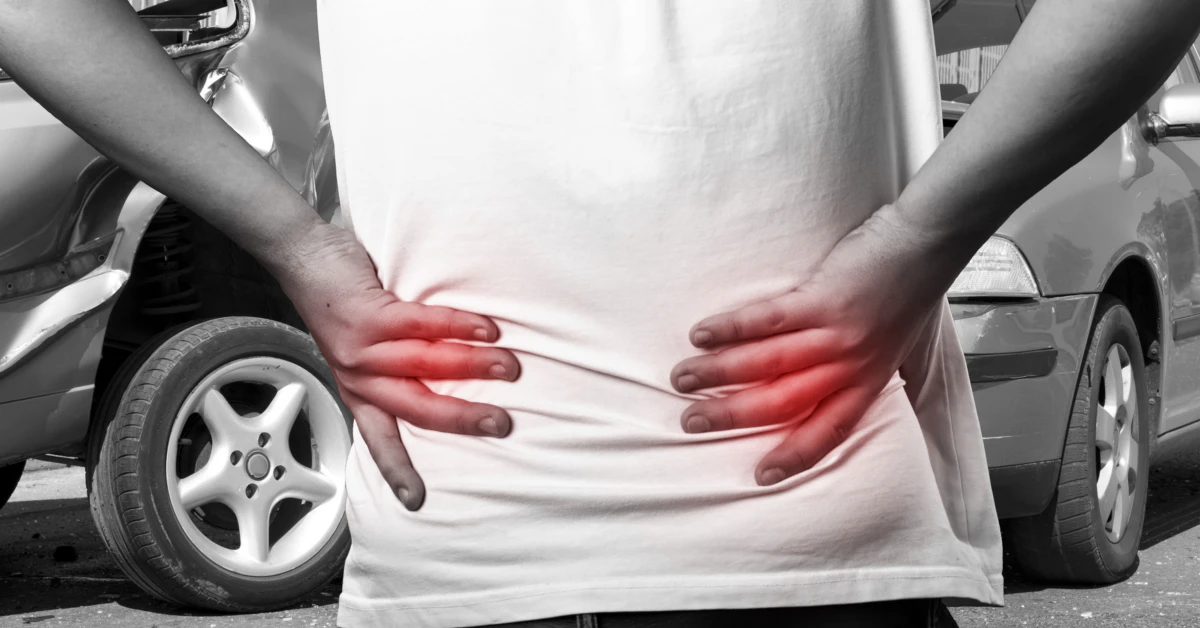

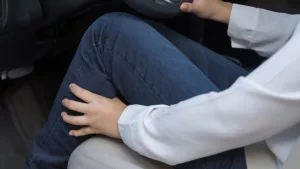
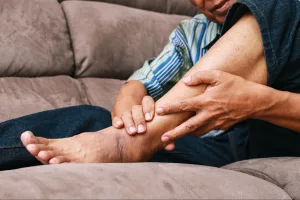
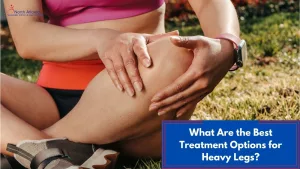


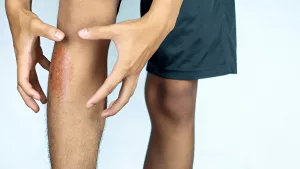






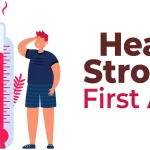




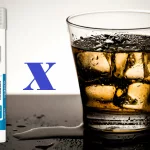
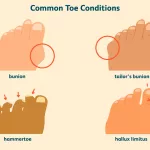

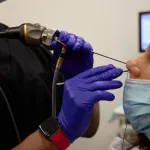
Leave a Reply
You must be logged in to post a comment.